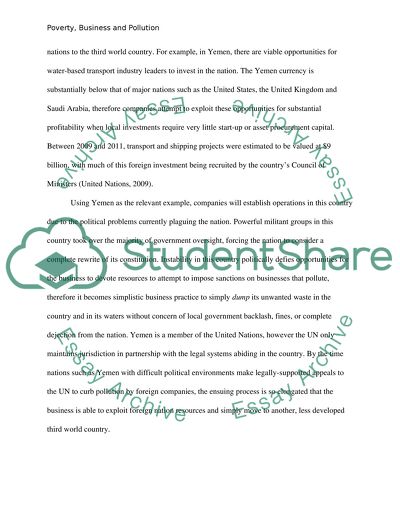Cite this document
(Poverty, Business and Pollution in a Variety of Third-World Nations Term Paper, n.d.)
Poverty, Business and Pollution in a Variety of Third-World Nations Term Paper. Retrieved from https://studentshare.org/macro-microeconomics/1469411-read-case
Poverty, Business and Pollution in a Variety of Third-World Nations Term Paper. Retrieved from https://studentshare.org/macro-microeconomics/1469411-read-case
(Poverty, Business and Pollution in a Variety of Third-World Nations Term Paper)
Poverty, Business and Pollution in a Variety of Third-World Nations Term Paper. https://studentshare.org/macro-microeconomics/1469411-read-case.
Poverty, Business and Pollution in a Variety of Third-World Nations Term Paper. https://studentshare.org/macro-microeconomics/1469411-read-case.
“Poverty, Business and Pollution in a Variety of Third-World Nations Term Paper”, n.d. https://studentshare.org/macro-microeconomics/1469411-read-case.


